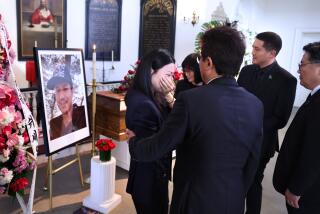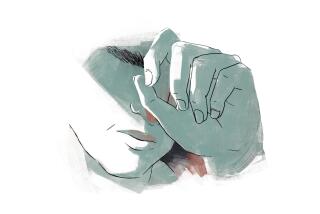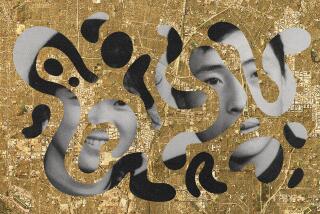Center helps Asian Americans combat mental illness
Since she was a teenager, Stella Ho has wrestled with fainting spells, seizures and suicidal tendencies.
Doctors in her native Hong Kong struggled to figure out what was wrong with her. She was unable to hold onto her job as an office clerk. Relatives ostracized her and kept her away from family functions.
“They didn’t realize I was sick,” said Ho, 56. “They were afraid I would become a burden and disturb the family peace.”
Ho didn’t really understand her condition either until she immigrated to the United States in 1988 and began seeking help from the Asian Pacific Family Center. The Rosemead-based nonprofit is a welcome comfort for Asian immigrants battling mental illness, a little understood and even invisible health issue in parts of the community.
“Most people are very uneducated about mental illness,” said Jeanette Choi, program director for outpatient mental health services at the center. “For Asians, it’s almost taboo to talk about it because it’s considered a stigma and connected to shame and weakness of personality.”
According to the National Alliance on Mental Illness, one in four American adults suffers from some form of mental health disorder. Racial and ethnic minorities are less likely to have access to mental health services and often receive poor care.
But little is known about the full scope of mental health problems in the Asian American community. What limited research there is tends to lump this diverse group into one ethnic category, said California Assemblyman Mike Eng (D-Monterey Park), who held a legislative town hall meeting Wednesday to draw more attention to the issue.
“There are over 40 ethnic groups in the Asian Pacific Islander community,” Eng said. “Our first goal is to show that this community is very diverse; each has its own characteristics.”
Earlier this year, Eng released a report that was the first of its kind looking at the health profiles of the various Asian subgroups living in California. The study, done in collaboration with the University of California Asian American and Pacific Islander Multi-Campus Research Program, showed that certain groups are at higher risks of some illnesses than the rest of the population, while other subgroups have been rarely studied, if ever.
For example, the Southeast Asian population reported a higher rate of mental disability than any other Asian subgroup. Experts say this could be the result of war trauma or experiences as refugees.
Counselors at the Asian Pacific Family Center say they see many Vietnamese immigrants who lost family members in the war. Some were soldiers who can’t get images of dead bodies out of their minds.
“They suffer from constant nightmares, depression and mood swings,” Choi said. “After some 30 years, they still live with the trauma.”
Huong Ly escaped from Vietnam in a packed boat that took three months to reach Hong Kong. Then a teenager, she had seen her entire village wiped out by constant bombing.
Her eyes well up when she recalls the devastation. “My little sister and I just held each other and cried and cried,” said Ly, who still struggles from depression, stress and paranoia.
There are many like Ly who need help but must join a long waiting list at the center, which provides counseling, treatment and prevention services in nine languages and dialects.
It also can be difficult to find staff members willing and able to do the job, according to Terry S. Gock, the center’s divisional director. Even his own parents, who are Chinese, did not understand why he wanted to specialize in psychology.
“A lot of Asians don’t think psychology is a profession that would be productive or that you could even make a living out of it,” Gock said. “So we have a hard time recruiting the best and brightest in the Asian community to enter this field.”
At the moment, the center serves more than 1,400 clients, who are among the area’s poorest residents. That leaves many working families with problems to fend for themselves.
“We don’t even have funding to serve the working poor,” Gock said. “That includes many Asian families who are small-business owners with no insurance who can’t afford to go to private doctors. Yet they are not poor enough to be served by us.”
Those lucky enough to receive help tend to stick to their treatment and go on to live productive lives. Some return to help others.
Chris Chau had a schizophrenic disorder that left him paranoid, fearful and unable to work. The 43-year-old immigrant from Vietnam and the 10th child of a mother who died giving birth to him was unaware of his illness for years. Then one of his sisters forced him to seek help at the family center. Since then his condition has stabilized. He has been able to do part-time work as a janitor and now volunteers at the center, teaching English to new immigrants.
Ho and Shirley Wong were also patients who later found work at the center, helping manage its independent living facility.
“I think we should find people willing to listen to us and talk about these things,” said Wong, who is from southern China and considers herself lucky to have gotten help. She credits her father, who, despite being in his 70s, was willing to drive her from their home in Torrance for her weekly treatments.
“If you don’t talk about it, people don’t know you need help,” she said.
More to Read
Sign up for Essential California
The most important California stories and recommendations in your inbox every morning.
You may occasionally receive promotional content from the Los Angeles Times.









